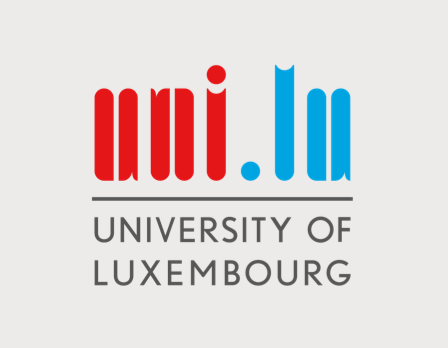The legal job market is competitive, and general qualifications only scratch the surface of what’s required for a successful career, especially in tax law — a field that serves as the bedrock for economic stability and legal integrity.
Indeed, modern taxation is complex, demanding a deep understanding of not just one, but various dimensions. This is why the Faculty of Law, Economics and Finance (FDEF) at the University of Luxembourg offers a Master in European and International Tax Law — a programme that uniquely combines Luxembourg tax law, European tax law, and international tax law. This level of breadth was set in place to evolve students into leaders in their respective areas of tax expertise.
Eirini Pipidi Kalogirou moved from Greece to Luxembourg to do just that. Today, she’s a Senior Tax Associate at high-end independent advisory firm ATOZ — a position that was hers for the taking ever since she was a student. She had the support of the “ATOZ Chair in European & International Tax Law”, held by Prof. Dr. Werner Haslehner which was developed by ATOZ in collaboration with FDEF. She then interned at ATOZ as a tax advisor, before landing a full-time role here.
“Throughout the years, I have been tutored, supported and guided to develop technical skills, interpersonal skills and navigate through all the aspects of being a tax professional,” she says. “Here, I was able to apply my academic knowledge to real-world scenarios, working with a diverse portfolio of clients ranging from investment funds to multinational corporations and high-net-worth individuals.”
The Master in European and International Tax Law starts with students laying a solid foundation with the rules in International Tax Law, European Tax Law, and Luxembourg Tax Law. They gain insight into related areas such as company law and financial accounting. The second semester focuses on familiarising students with more specialised topics like investment funds and the taxation of financial transactions. The third and final semester of the programme emphasises the integration of knowledge and the practical application of learned concepts through a thesis.
Throughout, students receive guidance from a diverse and esteemed faculty, comprising leading scholars, tax lawyers, tax judges, and members of the tax administration. For example, Prof. Dr. Isabelle Corbisier is a Full Professor with a background in company law and the law of obligations. Her expertise spans national, comparative, and European law, providing students with a comprehensive understanding of the legal landscape. Associate Professor Dr. Aikaterini Pantazatou’s research interests focus on European economic integration through “fiscality,” providing students with a nuanced understanding of the legal and economic complexities of taxation.

The Master in European and International Tax Law was tailored to the requirements of the Luxembourg tax practice. Source: University of Luxembourg
Prof. Dr. Haslehner’s significant contributions to the fields of tax law, tax policy, and European law have earned him numerous accolades, including the European Academic Tax Thesis Award. He is also the ATOZ Chair for European and International Taxation at the University of Luxembourg. This connection offers students access to the highest-level scholarship and discussions on the latest developments in international tax law by leading experts.
“The professors are renowned experts in their domains of practice,” shares graduate Rita Julien. “In fact, in some cases, they’re the ones writing the textbooks of reference in their field, so it’s a privilege to learn from them. We benefitted from a small class size of just 25 too.”
The university’s location facilitates impactful learning beyond classrooms. Being close to the Court of Justice of the European Union allows students to be at the forefront of EU tax law, enabling them to attend hearings on the most important cases of the day. The Faculty of Law, Economics and Finance even has meaningful partnerships with companies and institutions across Luxembourg that often translate to exclusive internships, scholarships, and fellowships for students. The lineup currently includes the Ministry of Finance, Ministry of the Economy of the Grand Duchy of Luxembourg, A&O Shearman, Advanzia Bank, the ATOZ Foundation, Barreau de Luxembourg, Fondation Pierre Werner, and several others.

Thanks to the FDEF’s connection to the ATOZ Foundation, students can apply for a needs-based scholarship to cover the costs of living and studying in Luxembourg. Source: University of Luxembourg
“Through invitations to recruiting events and competitions with companies in Luxembourg, the Study Director made an effort to connect us with potential employers all throughout the year,” shares Julien, who since graduating, earned a PhD in Vienna and launched a successful career in academia.
“For example, we participated in a workshop with local law firms and consulting firms. This exercise was an integral part of the master’s studies and combined everything we learned into a practical case. We worked together in teams, under the supervision of leading practitioners, to solve the legal questions presented to us.”
Julien’s positive experience and career trajectory are a testament to the Master in European and International Tax Law’s capacity to cultivate leaders in academia. However, with its comprehensive approach, the programme offers a pathway to success for ambitious individuals seeking to make a meaningful impact in the world of tax law in their own unique ways. For example, it’s equally well-suited for those aspiring to excel in private law practice or accounting firms, government administration, or the judiciary.
“The Master in European and International Tax Law prepared all of us for our next steps, whether in practice or in academia,” says Julien. “It is a rigorous programme with high expectations — and that is what we can all expect to encounter in our future careers.”
Follow the Faculty of Law, Economics and Finance on LinkedIn and Facebook or follow the University of Luxembourg on Facebook, Instagram, LinkedIn, and YouTube.













